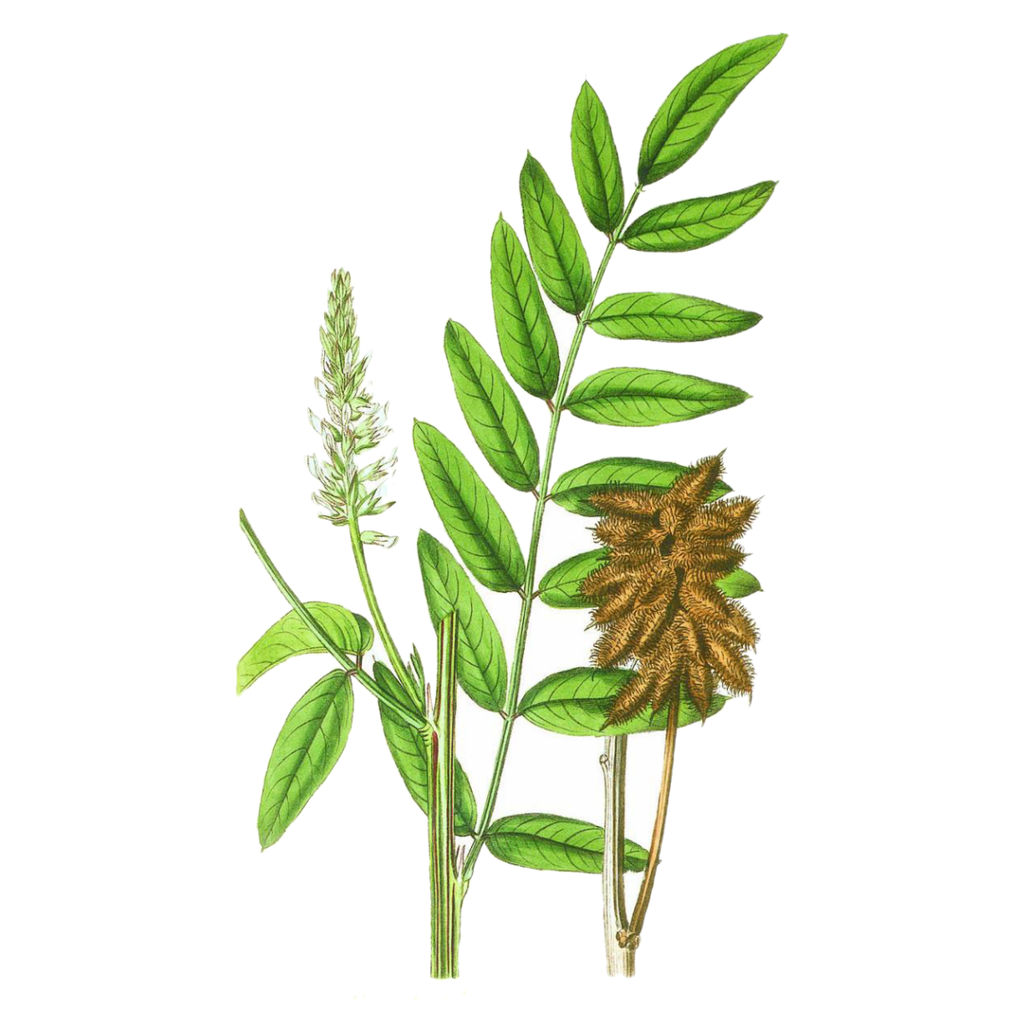Licorice
Licorice root (Glycyrrhiza glabra) has been used for thousands of years in traditional medicine for its extensive health benefits. One of its primary components, glycyrrhizin, has potent anti-inflammatory and antiviral properties, making licorice root effective in treating respiratory conditions such as bronchitis, coughs, and sore throats. Glycyrrhizin also helps soothe gastrointestinal issues like ulcers, gastritis, and acid reflux by protecting the stomach lining and promoting mucous production. Additionally, licorice root exhibits adaptogenic qualities, which can help the body cope with stress by regulating cortisol levels and enhancing overall adrenal function.
Beyond its anti-inflammatory and gastrointestinal benefits, licorice root has been found to support liver health and improve immune function. The root contains flavonoids and other compounds that have antioxidant effects, protecting the liver from damage caused by toxins and oxidative stress. Its immune-boosting properties help the body fend off infections and can be particularly useful in managing conditions like hepatitis. Moreover, licorice root has been studied for its potential in balancing hormone levels, which can alleviate symptoms of menopause and premenstrual syndrome (PMS). With its wide range of medicinal properties, licorice root remains a valuable herb in both traditional and modern herbal medicine.





